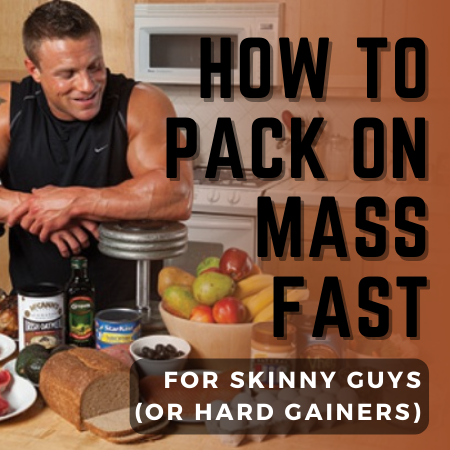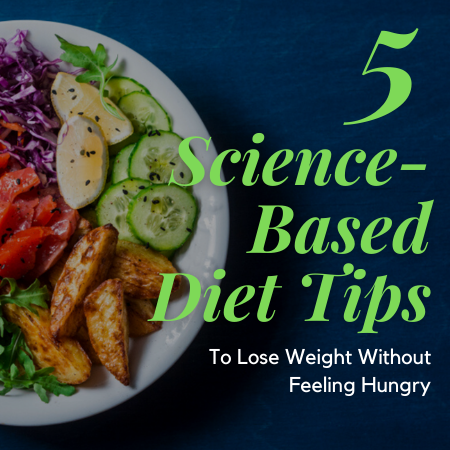
How to Lose Weight Without Counting Calories
If you’ve been following me for a while, you would know that I’m a huge advocate of counting calories in order to lose weight. However, many people can be so obsessed with calorie counting that it causes eating disorders. Others also find counting calories too time-consuming and inaccurate.
But the truth still holds - the biggest factor in diet is calories. We must be in a calorie deficit to lose weight. But how do you do so without counting calories? The answer is to eat healthier foods. This is because the second biggest factor in diet is the kinds of foods you eat. When you try to eat healthier foods, you typically tend to lower your calorie intake without noticing or barely even trying. So, if you switch up whatever you’re eating to healthier foods, you are actually killing two birds with one stone - better for your health, reducing illnesses and diseases, and eating less food in general which lowers your calorie count. Therefore, we should prioritize eating healthier food instead of just eating less.
However, when trying to eat healthily, many people focus on what not to eat. Usually diets which eliminate certain foods are diets that are just fads and are not sustainable. Instead, what they should be focusing on is knowing what to eat. And here we will be going through the things to add into your meals to lose weight without counting calories. Let’s dive in.

Does Starvation Mode Exist? (i.e. If you eat too little, will you gain weight?)
“Starvation mode” is a common fear among dieters. The claim here is that if you diet too intensely for too long, your metabolism will get damaged. This is caused by your body’s protection system. And as you continue to eat less, you will stop losing weight, and in some cases, gain weight! That is because your metabolism has dropped way too low.
And to make things sound more absurd, the same people claim that to lose weight, the solution is then to eat more, not less! That’s basically telling someone who is struggling with weight loss, “Hey! Stop dieting and start eating more! You’ll then start to lose weight as a result!” Yes, this belief is actually rampant and it is termed as “starvation mode”.
But how true is this? Is “starvation mode” a myth or is it a real thing? More importantly, what should you do if you hit a weight loss plateau? Read on to find out more!

Difficulties You’ll Face While Dieting and How to Deal with Them
If you’re been following me for a while now, you’ve probably know that to lose weight, you will need to be in a caloric deficit. That is, to expend more calories than you are consuming. This is usually done by tracking your calories and macronutrients, and then ensuring you’re consuming the right amount of calories such that your weight drops. Simple as it sounds, doesn’t it? However, like any other journey, roadblocks are unavoidable and difficulties are sure to come.
These difficulties can highly derail your success. You definitely wouldn’t want that, would you? But if you are able to foresee these difficulties, you’ll be able to deal with them more effectively. Even better, if you can deal with them ahead of time, you will be able to avoid these difficulties altogether. Fortunately, in this article, I will be going through 3 difficulties that is very likely to happen to you during a fat loss diet and how to deal with them.

Practical Tips on how to use Intermittent Fasting for Fat Loss (Many Studies included!)
I’m sure you’ve heard of Intermittent Fasting (IF) before. It is basically specifying when you should eat instead of what you should eat. Many claim that IF can not only help with fat loss, it can improve cardiovascular health, decrease cancer risk and even increase lifespan! But it seems counter-intuitive, doesn’t it? After all, IF is skipping meals for hours or even days, and then feasting within a designated time frame, which seems to be going against the norm.
But fasting isn’t a new concept by any means. Our ancestors have actually been doing it during our hunter-gatherer days, where they have to fast for days if they are unable to find food. IF is just a rebranding of this. Furthermore, we are actually already fasting when we are asleep. And some of us are already doing IF but may not even know it! Most commonly known as skipping breakfast.
So what is the truth? Can IF magically help with fat loss and other benefits? And if so, how exactly should you do IF to see the best results? Here I’ll be covering the types of IF, benefits and shortcomings of IF, how long to fast for, and how much to eat. Let’s dive in.

How to Pack on Mass Fast for Skinny Guys (or Hard Gainers)
You’ve been training for some time, eating all the ‘bodybuilding food’, and on paper, it seems like you’re doing everything right. But you just can’t seem to put on any size despite all the hard work, and get frustrated. You look at yourself in the mirror daily and feel like you’re just destined to be skinny forever, or in other words, a hard gainer.
I’ve come across many people who once thought they were hard gainers. No matter how much they ate or trained, they just can’t seem to put on any weight onto their skinny frame. Although there are studies that show that body types are not pseudoscience, it is still definitely possible for hard gainers to put on significant muscle mass as long as they are eating and training right. And after these hard gainers realized their mistakes and optimized their training and nutrition, they started to add pounds of muscle to their frame after consistency and patience.
I am pretty sure most of you hard gainers can do the same too. And in this article, I’ll be going through the things skinny guys should be doing to put on muscle mass in the most efficient way possible. Let’s dive in.

5 Science-Based Diet Tips to Lose Weight without Feeling Hungry
If you’re aiming to lose weight, it is no doubt that having the right nutrition strategy is the most important factor. Many think that it is simply eating less, since we know that in order to lose weight, you should be eating less calories than you burn. However, the problem with this simplistic model is that it fails to account for how the different types of food that you eat can affect both the amount of calories in and the amount of calories out.
If you feel like you are eating so little that you’re constantly hungry, your nutrition strategy might just be the wrong one. In fact, studies have shown that the biggest reason why people fail their diet is because of high hunger levels.
What you should do instead is to focus on the types of food you’re eating and how you’re eating them, which can make a huge difference to your hunger levels. And in this article, we will use a science-based approach to look at some ways you should be eating to lose weight without feeling hungry. Let’s dive in.

Step-by-Step Tips on how to Break a Weight Loss Plateau
When you first start your weight loss journey, everything is smooth-sailing. You see your scale weight dropping consistently for days as you start exercising and going on a diet. You’re happy that everything is working, and look forward to achieving your dream body soon.
But one fateful morning, as you step on the scale, you realize that your weight isn’t falling like it used to. You get stressed up, but brush it off as a one-time event. However, the following morning, the same thing happens - same weight, or worse, heavier than the previous morning! The weight that was previously falling off consistently seems to be sticking onto you for its dear life now. This continues for a week and you get demoralized and feel like you’re just not meant to be lean. You then search the internet for answers, and get things like “carb cycling”, “intermittent fasting” or “starvation mode”, but get even more confused.
This is something you’ve probably experienced before. And if you have not, you can actually count on this to happen sometime.
Well, I’m here to tell you that you’re actually not in a weight loss plateau. But if you’re really in one, breaking it is actually much simpler than you think. And in this article, we will check out what weight loss plateau really is, and what you can do about it.

6 Small Lifestyle Habits to Lose Weight without Trying too Hard
Many times, losing weight can feel daunting. It seems like making huge changes in your life like meal prepping and spending hours in the gym is the only way to achieve your goals. Fortunately, that is not how sustainable weight loss works. Making such a drastic change can help you lose weight fast, but it will not be lasting. What we should aim to achieve here is to lose weight and keep it off.
And how do we achieve that? Through making small changes to your existing lifestyle! As you incorporate minor adjustments day by day, you’ll soon begin to see how they can add up to something very significant. The more these adjustments are repeated, the stronger and more automatic the habit will be, and you’ll be more likely to stick to them.
We have seen how powerful a habit can be in my previous article. Now we will specifically look at small habits we can make to achieve sustainable weight loss. Let’s dive right in.
